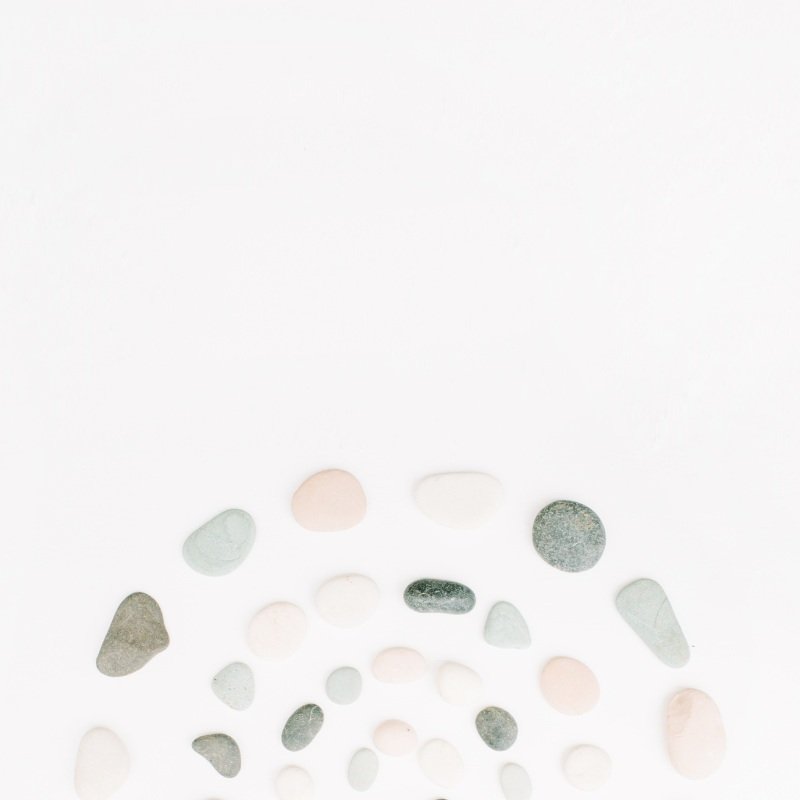Boundaries for Moms: Why You Struggle to Set Them and How to Start
As a mom, especially in the early months postpartum, boundaries can feel impossible to name- let alone protect. You might find yourself saying “yes” when you’re already maxed out, biting your tongue to avoid conflict, or wondering why your needs seem to come last- again.
This blog post will help you gently explore your relationship with boundaries, understand where those patterns may have come from, and begin the process of building boundaries that protect your energy, your time, and your mental health- without guilt.
What Does “Having Boundaries” Even Mean as a Mom?
Boundaries are simply the limits we set to protect our emotional, physical, and mental space. They’re how we honor our needs, especially in relationships. And let’s be honest, motherhood makes that more complicated. Suddenly, you’re expected to be “on” 24/7, prioritize everyone else, and never complain. Sound familiar?
For many of us, boundary-setting was never modeled growing up. Maybe your mom gave endlessly to everyone but herself. Maybe you were expected to be the emotional support for your parents or told to “be a good girl” and not make waves. All of that early conditioning shapes how we show up in relationships now, especially as mothers.
But here’s the good news: just because you were conditioned to ignore your needs doesn’t mean you’re stuck there. You get to change the story.
Journal Prompts to Explore Your Boundary Story
These prompts are especially for moms who are trying to reclaim a sense of self in the thick of motherhood:
Growing up, how did your parents model boundaries (or not)?
Were you expected to be responsible for your parents’ emotions or needs?
Were your feelings welcomed or dismissed as “too much”?
Did you have privacy? Were your limits respected?
Did you feel safe saying “no”?
Now reflect on how that shows up in motherhood:
How does it feel to say “no” now?
Do you feel guilty when you ask for help or time alone?
Is there a fear that setting boundaries makes you a “bad mom” or partner?
What do you notice in your body when you think about setting a boundary?
These reflections aren’t about blame- they’re about understanding. When you know where your patterns come from, you can start to change them.
How Moms Express Boundaries: Rigid, Loose, or Flexible
Moms often fall into one of these categories when it comes to boundaries—sometimes switching between them depending on the day or the relationship.
Rigid Boundaries (aka “I’ve got this, don’t worry about me.”)
Moms with rigid boundaries often struggle with intimacy and will have few close relationships. There is an underlying fear of rejection and not being loved for who they are. They have difficulties asking for help, may so “no” a lot and can quickly shut down new ideas or offers from others. They tend to be very private, with few people actually “knowing” them. They are also conflict-avoidant and come off as more “distant.”
Rigid boundaries can look like:
You don’t ask for help—even when you’re drowning.
You keep your feelings tightly locked up.
You feel safer managing everything alone than risking disappointment or judgment.
Underlying belief: “If I don’t let anyone in, I can’t get hurt.”
Loose Boundaries (aka “Yes, I can do it…even if I’m falling apart.”)
On the other end of the continuum is Loose Boundaries. Moms with loose boundaries are going to be more of a “people-pleaser”, they’ll have a hard time saying “no” (often to their own detriment), and they fear disappointing or upsetting others. They also often base their self-worth on what other people think of them and within this, they may struggle knowing who they are and what they like. They may also find themselves always trying to “fix” or “help” others. People with loose boundaries are also conflict-avoidant.
Loose Boundaries can look like:
You overextend yourself constantly.
You fear letting others down, so you say “yes” even when your body says “no.”
You may lose sight of what you want because you’re so focused on what others need.
Underlying belief: “If I make everyone happy, I’ll be loved and accepted.”
Flexible Boundaries (the goal!)
Mom’s with flexible boundaries are going to be very self-aware. They understand and value their own opinions and beliefs. They are able to communicate their needs to others and can say “no” to things when needed. They also accept “no” from others. Someone with flexible boundaries will be able to ask for help when needed. They are also able to regulate their own emotions and give space to others to express themselves.
You know what you need and can ask for it.
You can say “no” without spiraling into guilt.
You can hold space for your child’s needs and honor your own.
Underlying belief: “I can take care of myself while staying connected to the people I love.
Why Boundaries Feel So Hard in Motherhood
Motherhood can strip us of our sense of control, autonomy, and rest. You might feel like there’s no space for boundaries when your baby needs so much, your partner isn’t stepping up, or everyone has an opinion about how you “should” do things.
And yet, boundaries are what make it possible to stay connected- to your child, your partner, and most importantly, to yourself. Boundaries aren’t about pushing people away. They’re about making space to be in relationships that feel nourishing, not depleting.
Setting Boundaries
Learning and setting boundaries (and keeping them set) is really, really hard. Boundaries are a top topic in my therapy sessions. I always emphasize to my clients that boundaries are really hard for everyone. It’s also something that will need to be consistently checked in on and addressed. It’s definitely not a “one and done” type of thing. Exploring all this in therapy can be really helpful.
Boundaries allow us to have relationships.
While we often think of boundaries as preventing something in a relationship or keeping someone at a distance. I like to think of it as “this allows me to be in a relationship with you.” Without healthy boundaries, relationships can suffer and create a lot of resentment and frustration and can even lead to the end of the relationship.
If You’re Struggling, You’re Not Alone
Boundaries are one of the most common topics moms bring into therapy. And it’s no surprise—they touch everything. How you parent. How you relate to your partner. How you connect with your own body and needs. Exploring boundaries is a way of reclaiming your power as a woman and mother.
Therapy can help you understand your patterns, practice new skills, and begin to set boundaries that feel both safe and empowering.
Key Takeaways on Boundaries
Many moms struggle with boundaries because they were never modeled in childhood- and because motherhood is deeply boundary-challenging.
There’s no shame in finding this hard. You’re not broken- you’re conditioned.
There are three types of boundaries: rigid, loose, and flexible. The goal is flexible- where you can honor your needs and stay connected.
Journaling and therapy are powerful tools to begin healing your relationship with boundaries.
Boundaries aren’t selfish- they are how we stay in relationship without losing ourselves.
Ready to start setting boundaries that protect your peace?
If you’re a mom in California and looking for a compassionate therapist who understands the mental load of motherhood, I’m here. Let’s work together to help you find your voice, set boundaries without guilt, and feel more like yourself again.
Click here to schedule a free consultation.
Disclaimer: This is not a replacement for a therapeutic relationship or mental health services. This is for educational purposes only and should be in used only in conjunction in working with a licensed mental health professional. If you are in California and looking for a professional therapist feel free to use the contact me to request an appointment or search Psychology Today for local therapists in your area.









